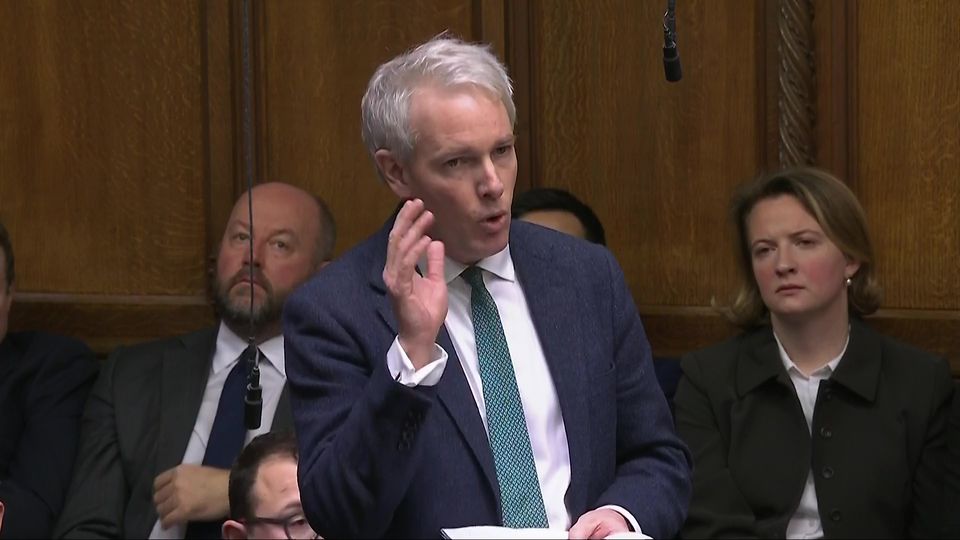The MP behind the historic assisted dying Bill said she is “very open” to hearing how safeguards can be strengthened, as a leading opponent insisted it needs tightened “at pretty much every stage”.
The Bill, which succeeded in an initial vote in Parliament in November, will be closely scrutinised by a group of MPs who are due to meet formally for the first time as a committee on Tuesday.
Kim Leadbeater has already described her Terminally Ill Adults (End of Life) Bill as containing the strictest protections anywhere in the world.
It could see terminally ill adults in England and Wales with less than six months to live legally allowed to end their lives, subject to approval by two doctors and a High Court judge.
But Conservative MP Danny Kruger – who is at odds with his mother, Great British Bake Off judge Dame Prue Leith in her support for legalisation – has argued the Bill is in need of a raft of amendments.
Mr Kruger said he remains opposed to assisted dying but will, as one of the 23 MPs on the committee, “do my job and try and make sure the Bill is as good as it can be and as safe as it can be”.
Ahead of what is expected to be a session to agree meeting dates over the course of the next few months, Ms Leadbeater said some 40 people had been invited to give evidence across three days next week.
She described this as “unprecedented for a private member’s bill and goes beyond what might typically happen with a government Bill of a similar length”.
She said: “The Bill already contains the strictest protections anywhere in the world, but if people have workable suggestions for how those safeguards can be strengthened even further I will be very open to those.
“Similarly, if those with relevant expertise of end-of-life care here or internationally have insights into how we can deliver the best possible holistic service through my Bill, I am sure the committee will be more than ready to consider them.”
Witnesses expected to give oral evidence next week include medical and legal experts, people with disabilities, practitioners from countries where assisted dying is already in place, and people with personal experience of end-of-life care.
As lead MP for opponents of the Bill during its first Commons debate in November, Mr Kruger previously said he believed Parliament can do “better” for terminally ill people than a “state suicide service”.
The historic yes vote that day means the legislation will now undergo line-by-line scrutiny by the committee over the coming months, before going back to the Commons for further debate among all MPs at its report stage.
Dame Prue Leith supports legalising assisted dying unlike her MP son, Danny Kruger (Yui Mok/PA)
Asked what changes he and others might seek to make to the Bill, Mr Kruger told the PA news agency: “There’s loads, from the beginning to the end of the Bill.
“From the concept of terminal illness, which I think needs much closer definition, right through to the process of a doctor approving you and so on, through to the judicial stage and then the method of death itself, how the drugs are administered and what drugs are allowed and so on.
“At pretty much every stage, I think the Bill needs to be tightened if it’s to achieve what Kim and others want it to.”
Mr Kruger said it is still possible the Bill, which he said had only just been agreed in principle, will be stopped.
He said: “The actual detail of how it would be done is now for debate and it might well be that enough MPs don’t feel that it is going to be done in a way that they regard as safe.”
Some MPs have previously indicated their support for the Bill might not continue at a further vote, if they are not convinced of strong safeguards around things like potential coercion.
The committee is made up of 14 MPs who voted in favour of the Bill and nine who voted against, and features two Government ministers.
Care minister Stephen Kinnock and Justice minister Sarah Sackman both voted for the Bill last November, although their respective bosses, Health Secretary Wes Streeting and Justice Secretary Shabana Mahmood, voted against.
Danny Kruger is an opponent of assisted dying legislation before Parliament (House of Commons/UK Parliament/PA)
The committee’s first meeting comes a day ahead of the the newly-formed Commission on Palliative and End of Life Care holding its first evidence session.
The independent commission has been set up by Labour MP Rachael Maskell and crossbench peer Baroness Finlay of Llandaff to look into the state of and challenges facing palliative and end-of-life care in England.
Baroness Finlay has previously stressed that the commission is “completely separate” from the assisted dying committee, adding that no matter what happens with that proposed legislation “we’ve got to do something about patient care”.
On Wednesday, the commission is expected to hear from national leads in England, Wales, Scotland, Northern Ireland and the Republic of Ireland on their national strategies and priorities for palliative and end-of-life-care.
The commission intends to hold evidence sessions until mid-April, before presenting a report to the Health Secretary.

